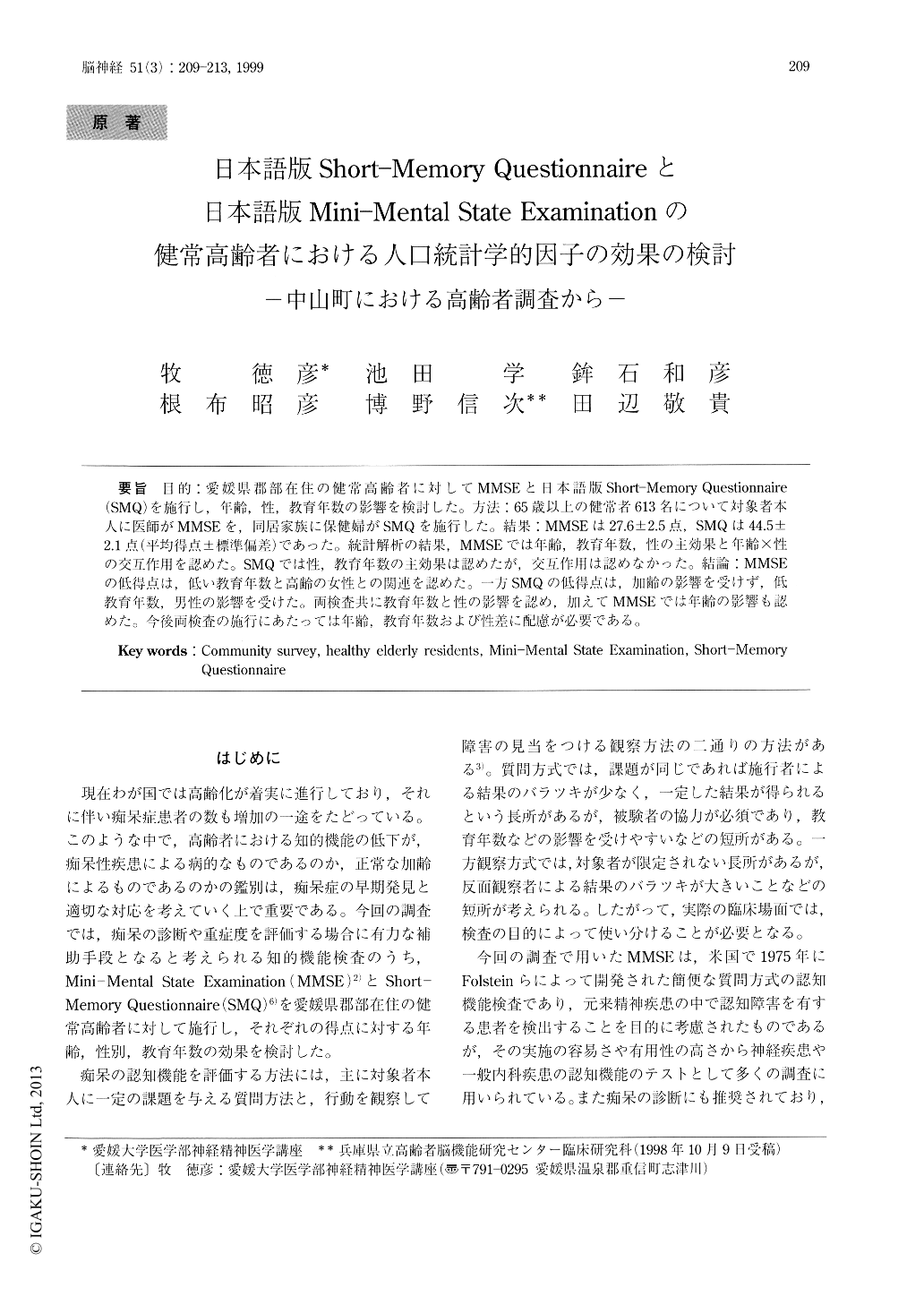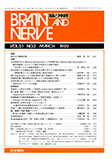Japanese
English
- 有料閲覧
- Abstract 文献概要
- 1ページ目 Look Inside
目的:愛媛県郡部在住の健常高齢者に対してMMSEと日本語版Short-Memoly Questionnaire(SMQ)を施行し,年齢,性,教育年数の影響を検討した。方法:65歳以上の健常者613名について対象者本人に医師がMMSEを,同居家族に保健婦がSMQを施行した。結果:MMSEは27.6±2.5点,SMQは44.5±2.1点(平均得点±標準偏差)であった。統計解析の結果,MMSEでは年齢,教育年数,性の主効果と年齢×性の交互作用を認めた。SMQでは性,教育年数の主効果は認めたが,交互作用は認めなかった。結論:MMSEの低得点は,低い教育年数と高齢の女性との関連を認めた。一方SMQの低得点は,加齢の影響を受けず,低教育年数,男性の影響を受けた。両検査共に教育年数と性の影響を認め,加えてMMSEでは年齢の影響も認めた。今後両検査の施行にあたっては年齢,教育年数および性差に配慮が必要である。
Background and Purpose: The Short-Memory Ques-tionnaire (SMQ) developed by Koss et al. is a stan-dardized, validated reliable informant-based scale to assess everyday memory problems. In the previous study, we prepared its Japanese version and validated the reliability in assessing patients with Alzheimer Disease. In the present study, we examined the rela-tions between the performance evaluated by the Japa-nese version of the SMQ combined with the Mini-Mental State Examination (MMSE) and demographic variables (age, sex, and education).

Copyright © 1999, Igaku-Shoin Ltd. All rights reserved.


